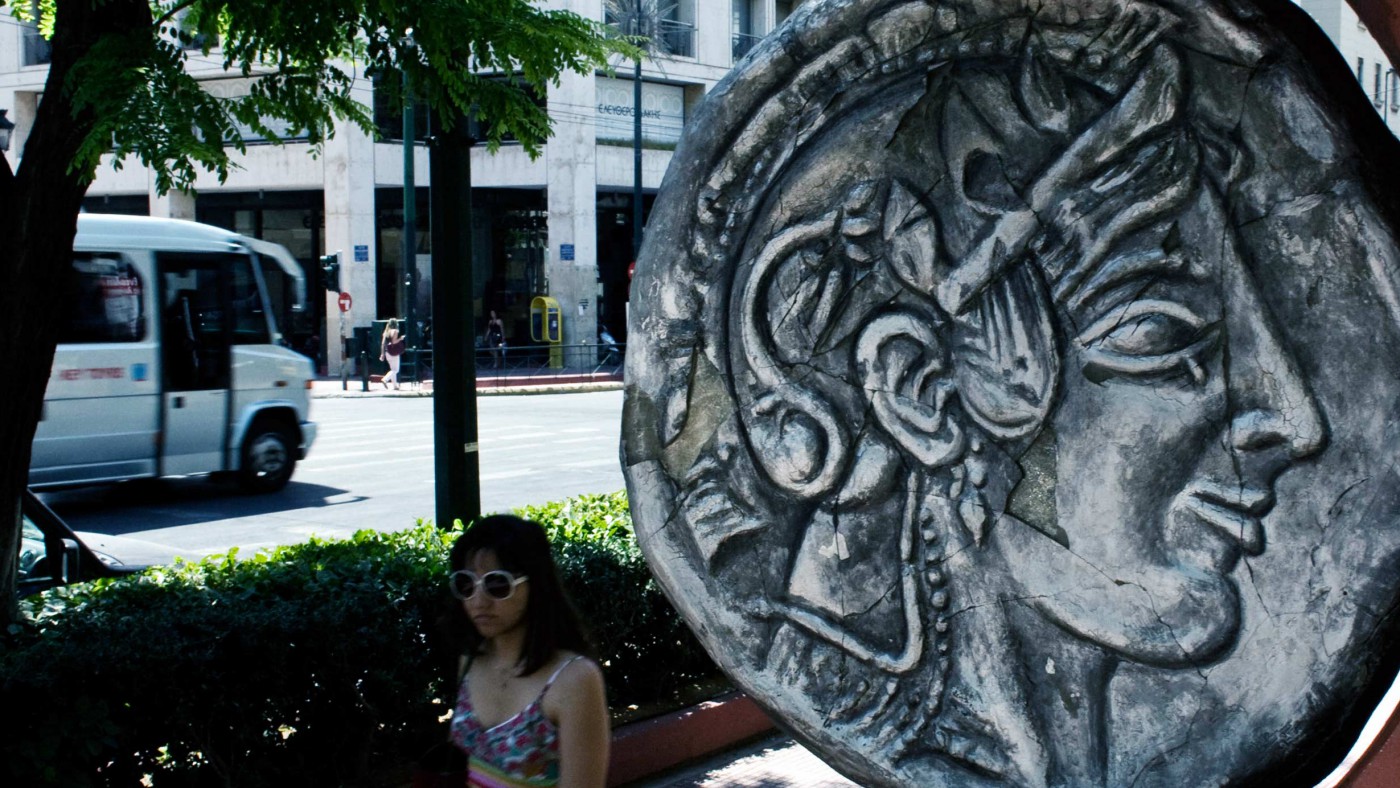Never mind a return to the Drachma, Greeks seem to be voting with their feet and adopting Bitcoin, the virtual currency which is one of the best performing asset classes in the last week or so. At the time of writing in the immediate aftermath of the Greek No Vote, it is trading at $273, a four month high. It is outperforming many asset classes, including gold.
Greek banks are closed again today and withdrawals at ATMs limited to small amounts. Capital controls are effectively in place. Apparently, one of the few ways you can readily move money in and out of the country is via a Bitcoin account. You can also use the old safe-haven fall-backs, like gold, diamonds and collectible postage stamps, but these are much more inconvenient.
According to Reuters, BTC Greece, the only Greek Bitcoin exchange, has seen a 400% increase in customers in the last two months. The founder Thanos Marinos says that the absolute numbers remain modest, at a few thousand with an average deposit of 700 euros. The surge in the Bitcoin price is therefore likely to reflect a wider market response. Other investors detect a trend and see the travails of the euro as a reminder of the more attractive alternatives to the EU’s fiat currency.
To those of a conservative mindset, an innovation like Bitcoin represents something of a dilemma. On the one hand, one is intrigued, yet again, by the market’s capacity for innovation. On the other, one is suspicious of something which is apparently rootless and not physical. We walk past the Bank of England or the US Federal Reserve, we see the signatures on our bank notes, and we are reassured by the strength and history of the institutional foundations of the dollar and sterling.
When the Bitcoin frenzy hit a peak two years ago and the price touched $1100, before crashing, I have to say I was not surprised.
The Greek crisis could be the making of Bitcoin, however. For the euro itself has a new, untested and shaky institutional framework. The currency is not 20 years old (the pound sterling has been in circulation since King Offa of Mercia first minted some pennies in the eight century and the Bank of England was founded in 1694) and yet the euro is already in the throes of an existential crisis.
With perfect timing, an analyst at BNP Paribas is reported in Business Insider as viewing Bitcoin as a threat to traditional financial service companies. Bitcoin is underpinned by a network of software called BlockChain which effectively acts as an online ledger of bitcoins bought and sold. It means there are supposedly no fakes ones in existence.
Johann Palychatta of BNP Paribas says that similar software used to buy and sell securities or commodities could render existing financial service companies, like brokers, redundant. Blockchain “should be considered as an invention like the steam or combustion engine,” he says excitedly.
It is probably too early to be confident that Bitcoin is really a durable store of value like the dollar, sterling, the Swiss franc or gold, but given the choice between the euro (conjured up by EU ideologues) and a market-created alternative, investors right now are endorsing the digital Bitcoin. One is tempted to join them.


